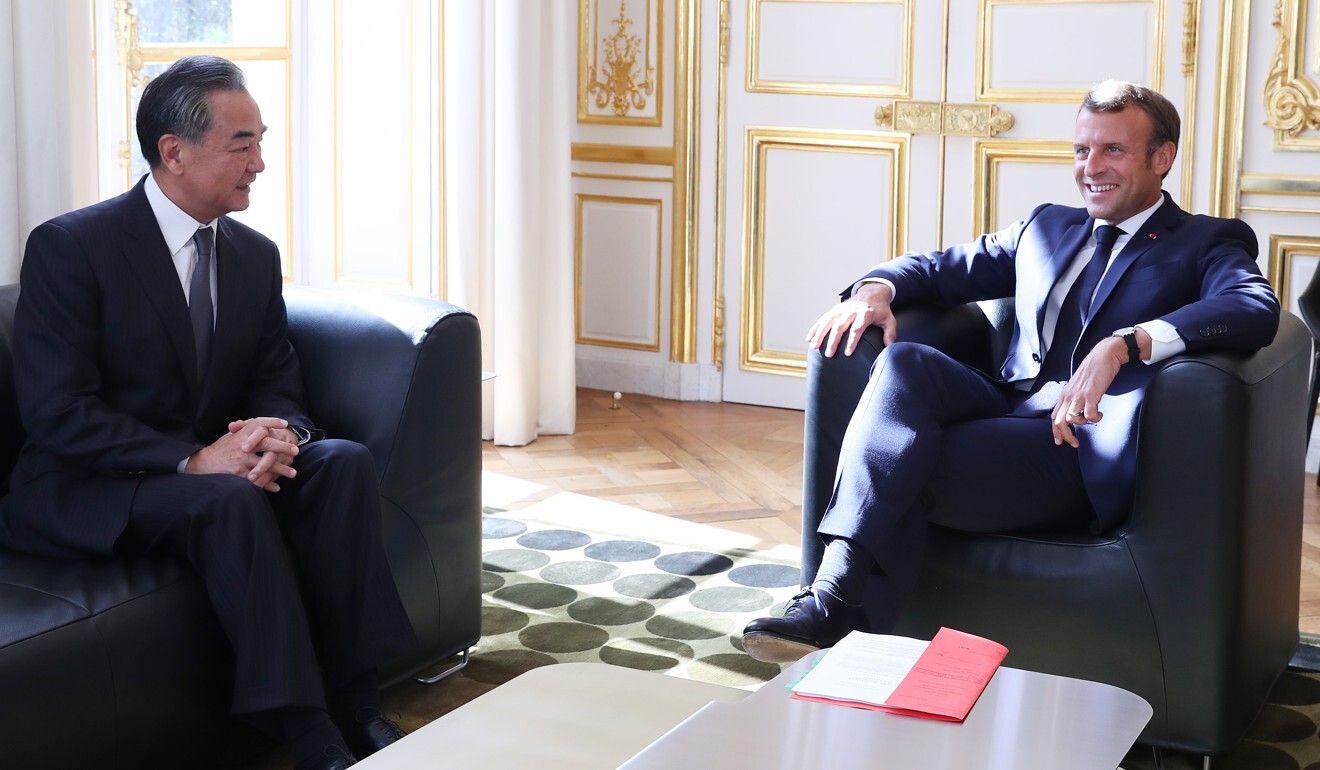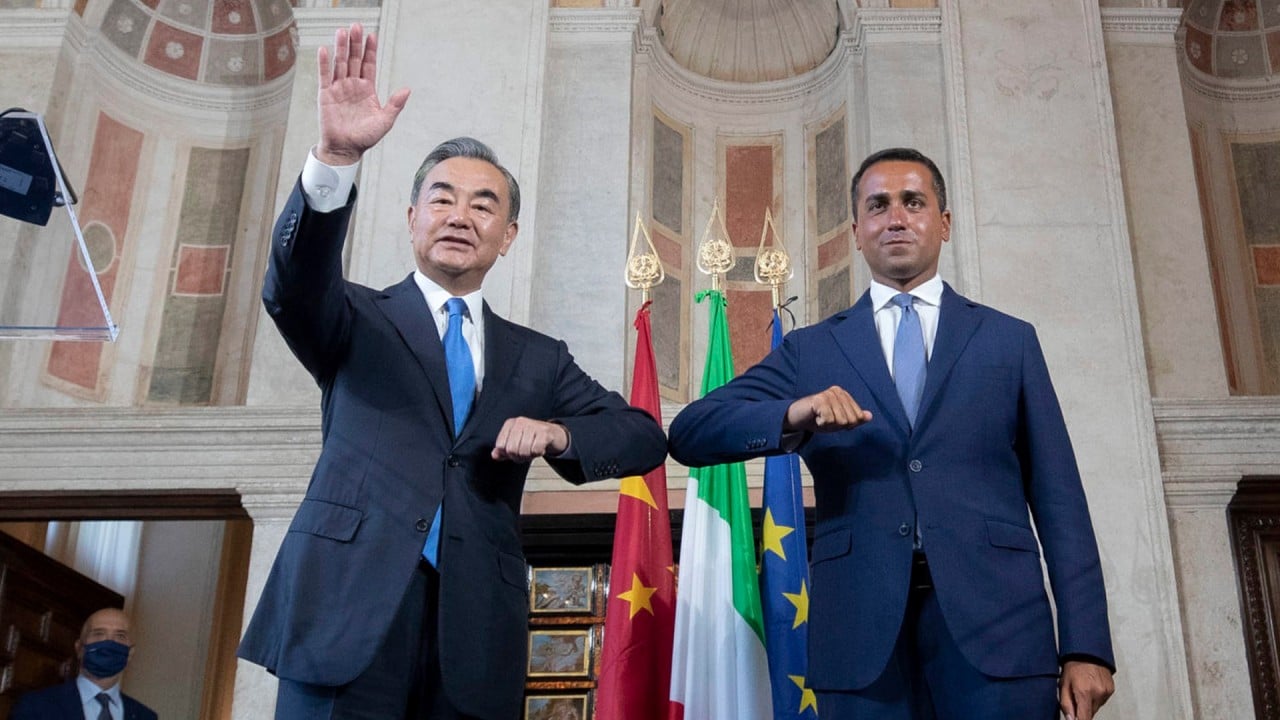
Top Chinese diplomat Yang Jiechi to visit Greece and Spain this week
- Back-to-back European visits by two Chinese foreign policy officials signal Beijing’s urgency to prevent further rebalancing in favour of the US, say analysts
- The Chinese foreign ministry announced Yang’s trip, which also includes a stop in Myanmar
Analysts say this signals Beijing’s urgency to prevent further European strategic rebalancing in favour of the US, but neither European country would favour Beijing at the expense of Brussels or Washington. Both Spain and Greece are facing increasing pressure to take sides between their security alliance with the US and vast business interest with China.

Yang, a member of the Politburo, is widely considered the highest-ranking diplomat within the Chinese Communist Party.

06:04
US-China relations: Joe Biden would approach China with more ‘regularity and normality’
“China is trying to regain ground amidst the massive pushback it is facing and visibly deteriorating relations with Europeans across the board,” said Plamen Tonchev, a China expert at the Athens-based Institute of International Economic Relations.
“Greece matters, as it used to be one of China’s staunchest supporters in Europe until recently, and hosts one of the most successful and visible Belt and Road Initiative projects,” Tonchev added, referring to the port of Piraeus in which China’s state-owned Cosco Shipping owns a 51 per cent stake.
During Xi’s visit to Athens, China and Greece agreed to push ahead with a €600 million (US$717 million) investment by Cosco, including mandatory investments of €300 million (US$359 million) by 2022, which once concluded will allow it to acquire an additional 16 per cent stake in the port.
Under former prime minister Alexis Tsipras, Greece was considered by Beijing to be one of the most reliable partners in the EU, as its poor economic outlook attracted huge Chinese investment.
China says Czech senate president ‘will pay heavy price’ for Taiwan visit
Amid diplomatic criticism, Greece helped torpedo an EU statement on Chinese human rights violations in 2017.
But the US has stepped up efforts to build closer ties since the electoral victory last year of Kyriakos Mitsotakis, a Harvard graduate.
The US is reportedly interested in the upcoming privatisation of the Alexandroupolis port in northern Greece, near the land border with Turkey, Tonchev noted.
Meanwhile, Cosco’s plan for an increased share in the Piraeus port also comes as the EU has turned more hawkish to the expansion of China’s takeovers of Europe’s strategic assets, especially amid the coronavirus pandemic, as the EU fears Chinese capital would be snapping up critical infrastructure at a time of market volatility.
The European Commission in June proposed in a white paper scrutiny over mergers and acquisitions funded by “state aid” from foreign governments, which would affect Chinese state-owned enterprises.
In Spain, Foreign Minister Arancha González Laya said on Monday that Europe “has to redefine how it wants to face the geostrategic situation” exacerbated by the US-China tension.
“The pandemic has accelerated trends that were already there: the polarisation of international relations between China and the United States, technological advancement and digitisation, and an erosion of the multilateral system of checks and balances,” she told Spanish newspaper El País.
“It has accelerated weapons such as disinformation or interference through cybersecurity,” González added. “We have to promote greater European strategic autonomy, beyond pure defence.”

03:12
China’s foreign minister begins Europe tour to discuss US influence, Hong Kong issues and Huawei
Spain’s Telefonica, Europe’s fourth-largest telecoms group, was planning to drastically reduce the amount of equipment it buys from Huawei for the core of its 5G networks in Europe, the company said in December.
Mario Esteban, senior analyst at the Elcano Royal Institute, said he was pessimistic that Yang’s visit to Madrid would yield much success.
“Prime Minister Pedro Sánchez will align with Brussels instead of Beijing,” Esteban said. “If forced, Spain would side with the US because of economic and strategic interests, not China.”

